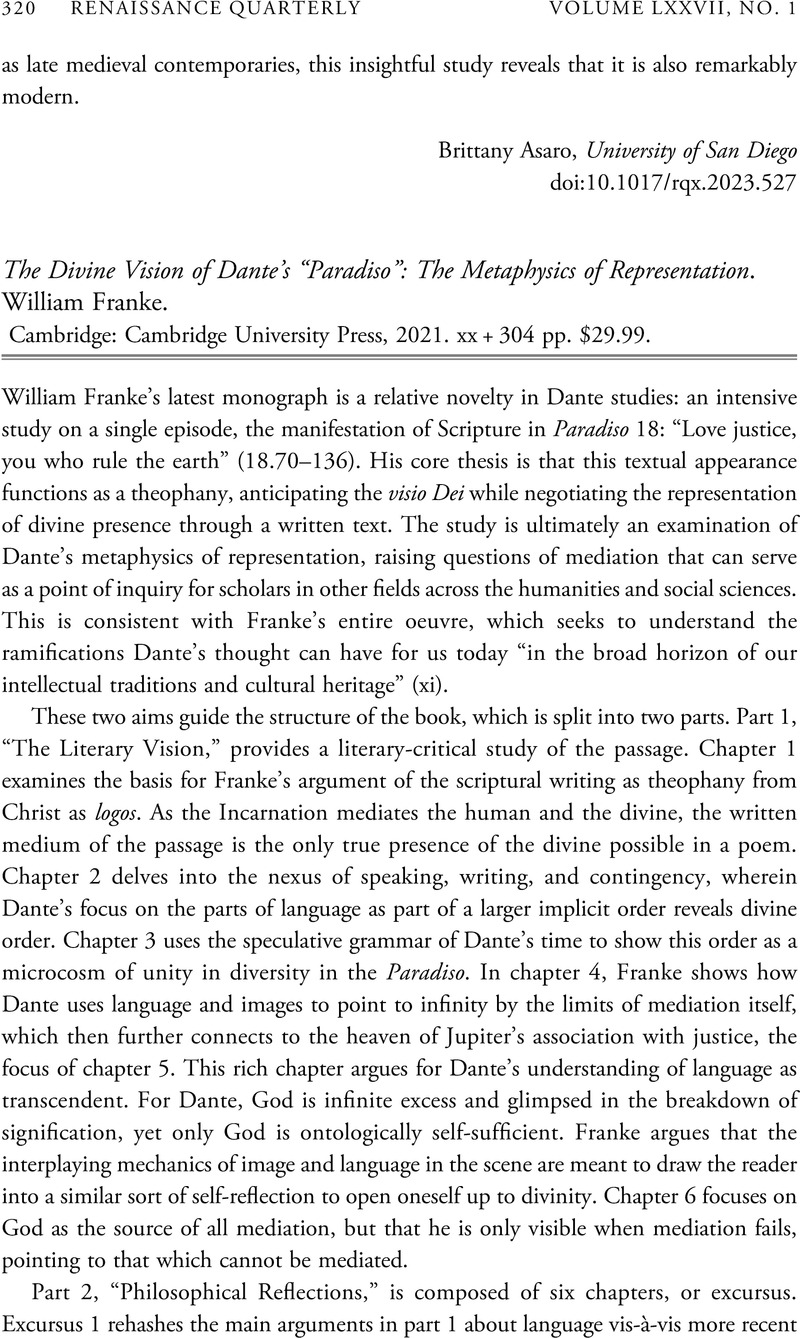No CrossRef data available.
Article contents
The Divine Vision of Dante's “Paradiso”: The Metaphysics of Representation. William Franke. Cambridge: Cambridge University Press, 2021. xx + 304 pp. $29.99.
Review products
The Divine Vision of Dante's “Paradiso”: The Metaphysics of Representation. William Franke. Cambridge: Cambridge University Press, 2021. xx + 304 pp. $29.99.
Published online by Cambridge University Press: 24 April 2024
Abstract
An abstract is not available for this content so a preview has been provided. Please use the Get access link above for information on how to access this content.

- Type
- Review
- Information
- Copyright
- Copyright © The Author(s), 2024. Published by Cambridge University Press on behalf of The Renaissance Society of America



